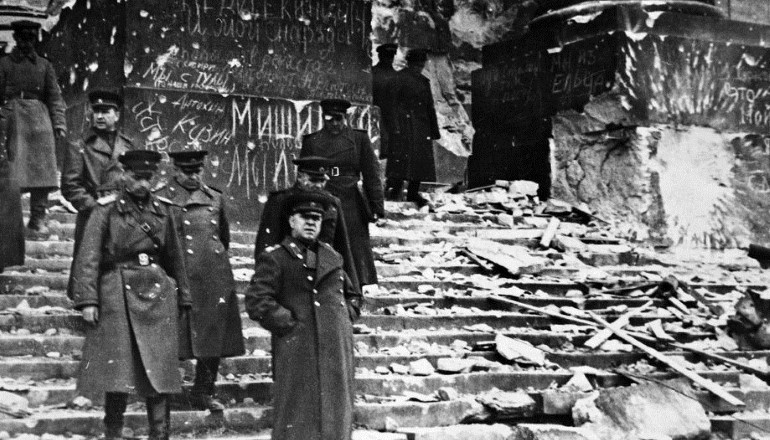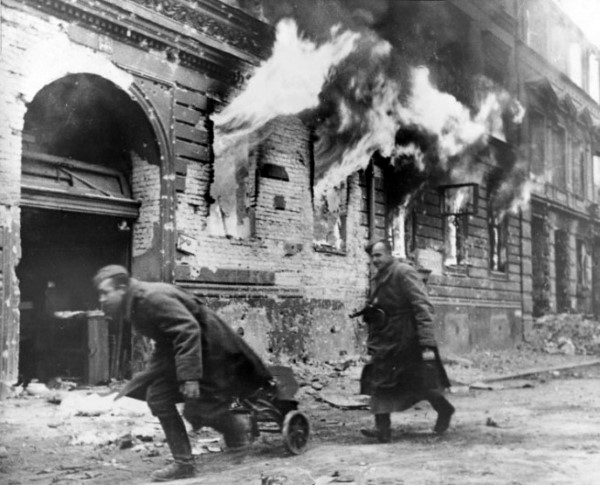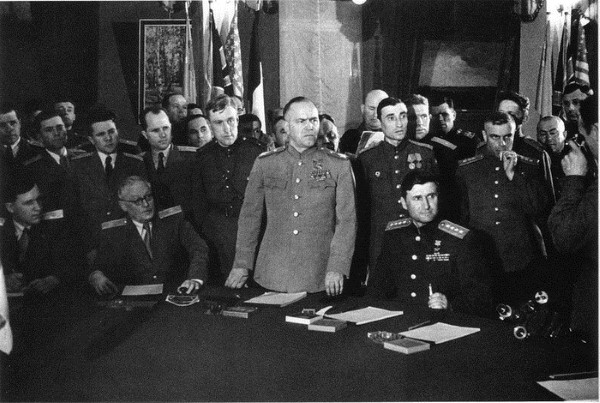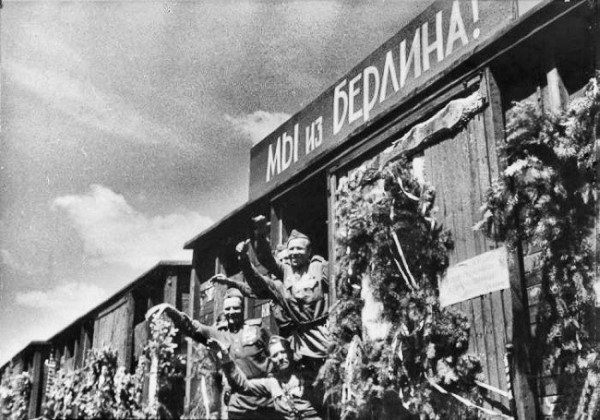Many of us are rather well informed about the history of the Great Patriotic War. We can name the date of our counteroffensive in the Battle of Moscow, describe the two phases of the Battle of Stalingrad and recall the name of the German plan to surround Soviet troops in the Kursk salient. And of course the Battle of Berlin is also not forgotten. But what do we know about this battle?

The red banner hoisted over the Reichstag. The unconditional surrender signed on the eve of May 9. Those are the brightest symbols of victory. But even the most appropriate symbols when lacking comprehensive knowledge and insight embarrassing become obscure and fade way…
What did the Allies want?
During Soviet times the final battle of that great war was cast in a dangerous shadow. After all, Marshal Vasily Chuikov in his memoirs stated that the fight for Berlin could have begun in February 1945. But then the victorious offensive was postponed by the excessive caution of Zhukov and Stalin. Another distinguished marshal, Ivan Konev, suddenly remembered that Stalin aimed to capture the enemy’s capital as quickly as possible, setting up a competition between army commanders, the success of which was paid for by soldiers’ lives. Later authoritative opinions emerged stating that in these battles the Red Army acted incompetently and bore unjustified losses. And today many say that Berlin there was no need to storm Berlin and people died in vain.

It is true that a large number of our soldiers really did die during this strategic offensive. Not half a million for even 200,000, as some say, but approximately 80,000. But the guilty ones here are not the Soviet commanders who supposedly drove their soldier to the slaughter but rather the Germans and, in part, our allies, and in equal measure.
This is no sensation. Both the British and the Americans acted rather strangely throughout the duration of the war: drawing out the opening of the second front, advancing in unhurriedly after landing in Normandy and in January 1945 they practically ceased fighting. It is only in the Hollywood film “Fury” that Brad Pitt cuts down hundreds of Germans on the April grass. In truth, the Allies were in negotiations over a separate peace and even planned together with German troops to commit the unthinkable – to attack the weakened Soviet Union. Incidentally, today there is no short supply of evidence of this – memoirs and declassified documents…
The Kremlin was well aware of the Allies’ desires, but there was hope that their comrades in arms would be wiser. It was only the death of Franklin D. Roosevelt, replaced by the Harry Truman, who was hostile toward the Soviet Union, that forced our leadership to take quick and decisive steps. Only several days later, on April 16, the Berlin offensive began, despite the fact that our troops were not yet ready. On April 25 the encirclement of the German capital was complete and the threat that the Americans would get there first dissipated.

Some historians believe that it was the effective actions of the Red Army to reach Berlin first that sobered the Allies and forced them to give up the idea of a new Third World War. Perhaps that is an exaggeration. Nonetheless, one cannot ignore the fact that the Red Army, which bore the brunt of the entire war suddenly went on the offensive toward Berlin guaranteed gave the Soviet Union the final and most compelling statement in the war.
Blow to the heart
Not only political motives were behind the rapid offensive and storm of Berlin. Our commanders remembered the sad lessons of Wrocław and particularly Budapest, where they had to maintain a siege for several months and suffered heavy losses. Moreover, even in April 1945 the Germans still had substantial forces and, most important, a determination to fight till the end. After all, they were defending their native land from Russian barbarians! Their desperate resistance could only be broken by a blow to the heart.

A careful analysis of the Berlin offensive shows that it was not only well executed it was brilliantly executed. It began with an attack on Seelow Heights, which protected Berlin from the East. This was not just a hill with steep slopes which our tanks could not mount. It also had numerous canals and stream which limited movement not to mention major defensive entrenchments.
It was impossible to simply go around this barrier. Time was short so our troops hit it straight on. There’s no reason to copy the so-called specialists and talk about Zhukov’s delusion and our generals’ habit of winning thanks to superior numbers. When encountering the best German units our generals actively sought out weak spots in the defense. As soon as they found it they directed all of their forces to this spot and in a blink of an eye slipped through to the enemy’s rear. Incidentally, this is something which the Germans were unable to do, even in 1941 and 1942.
The rapid advance meant that Berlin, which had been turned into a real fortress, was left defenseless. Only a few of the combat-ready units managed to fall back to the city. The remainder were surrounded in the thick forests to the southeast or fumbled around on the outskirts to the west unable to decide whether to take on the Russian tanks. This meant that everyone was called out to defend the city: firemen, builders, police, postal workers, the elderly and the youth of the Volkssturm… Of course they were not good fighters, but they were helped by the walls of their native town. Quite literally. Many of our soldiers noted that the houses in Berlin were very strong and they had to be pounded by tons of shells in order to drive out the enemy.

During the storm, which began April 25 and ended on May 2, Soviet troops demonstrated their mastery as well as their innovation. Units of shock troops composed of the best prepared fighters advanced ahead of the tanks as well as on boats, creating an unpleasant surprise for the Germans. They also did not expect the Russians to avoid the most dangerous sections of the city and break through to the Reichstag building in the center in just several days. The storm led not only the red banner being unfurled above the city but also drove the Führer to commit suicide and the remaining defenders of the city to give up their resistance. The skill of our troops can be seen in the statistics as well: for every fallen Red Army soldier, the Germans lost 5-6.
Our enemies and our “allies” and even the ubiquitous Guinness Book of World Records note that the Berlin offensive was one of the largest military operations in the history of war. And a brilliant one at that. But it’s significance is clear even without such epithets. It is sufficient to at the medal for the capture of Berlin, which was given to more than a million soldiers. Or read the graffiti on the walls of the Reichstag which are devoid of gloating and only express sorrow for those who did not survive to see victory and hope that this war would be the last…
Alexei Fedorov












